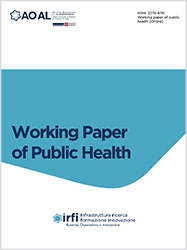Pleural sarcomatoid mesothelioma: clinical-pathological and survival analysis of a series of 80 cases, multicentre retrospective study
Accepted: 11 July 2016
All claims expressed in this article are solely those of the authors and do not necessarily represent those of their affiliated organizations, or those of the publisher, the editors and the reviewers. Any product that may be evaluated in this article or claim that may be made by its manufacturer is not guaranteed or endorsed by the publisher.
Introduction: Malignant pleural mesothelioma is a rare disease, but with a non-negligible incidence in asbestos-polluted areas. The sarcomatoid histotype (SMPM) is characterised by a particularly poor prognosis. Methodology: The characteristics and clinical outcomes of 80 patients with PMMS followed at the hospitals of Alessandria, Casale Monferrato, Rozzano and Padua were analysed. Results: After first-line chemotherapy partial response (PR) was observed in 2 patients (2.5%), disease stability (SD) in 32 patients (40%), disease progression (PD) in 25 patients (31%), non-assessable disease for 21 patients (26%). Time to progression (TTP) was 3.5 months; overall survival (OS) was 7.8 months. OS of patients receiving pemetrexed was 7.5 months vs 8.9 months of patients receiving chemotherapy without pemetrexed (p>0.05). Conclusion: The data confirm that sarcomatoid histotype has a worse prognosis than epithelioid, with poorer survival and poorer response to treatment. In particular, standard chemotherapy did not show efficacy, underlining the need for other therapeutic perspectives in clinical trials focusing on new biomolecular targets.
PAGEPress has chosen to apply the Creative Commons Attribution NonCommercial 4.0 International License (CC BY-NC 4.0) to all manuscripts to be published.

 https://doi.org/10.4081/wpph.2015.6707
https://doi.org/10.4081/wpph.2015.6707




